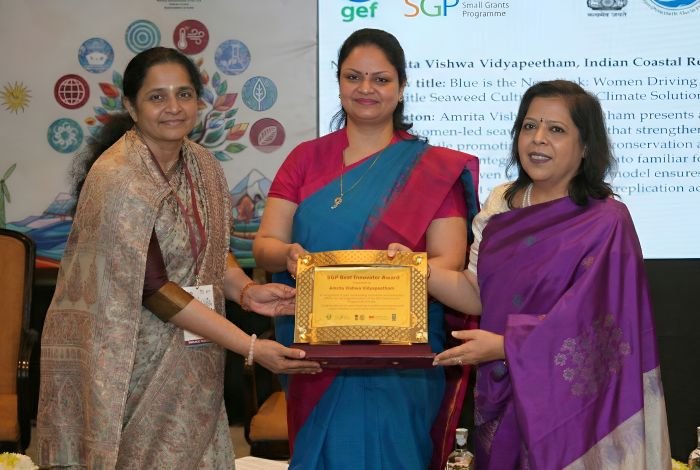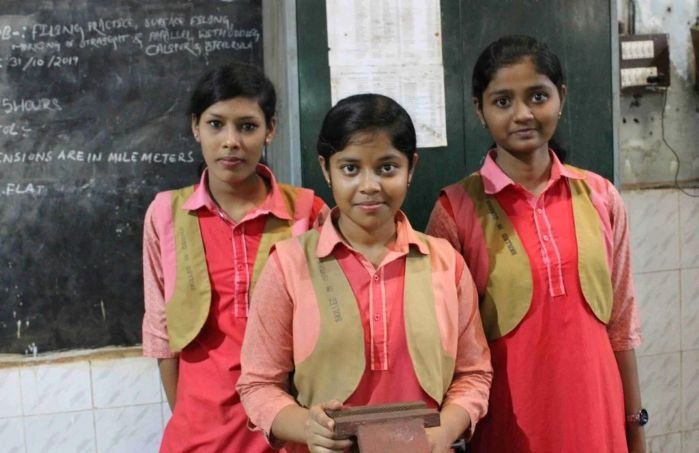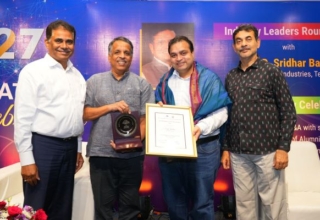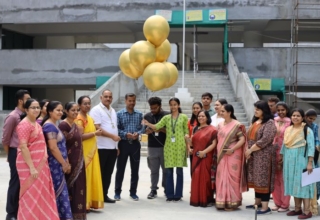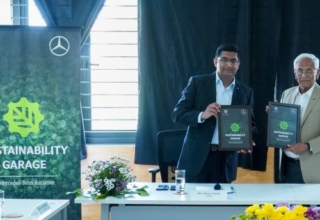
The Indian School of Business (ISB) has received a major CSR gift of ₹30 Crores by the Ramoji Foundation towards aiding infrastructure development at the school’s Hyderabad campus.
The funds received through this generous gift will support the construction of a state-of-the-art 430-seater auditorium as part of the upcoming Executive Centre. Upon completion, the facility will boost the school’s capacity to host international conferences, research seminars, distinguished lectures, and other prominent academic events.
 Acknowledging the gift and the role of philanthropy in ISB’s growth, Dean Madan Pillutla said, “ISB’s history has been replete with philanthropic support and this has helped the school thrive.”
Acknowledging the gift and the role of philanthropy in ISB’s growth, Dean Madan Pillutla said, “ISB’s history has been replete with philanthropic support and this has helped the school thrive.”
Underlining Sri Ramoji Rao’s commitment to fostering quality education at all levels in the country, while making the gift, Ch. Kiron, Trustee, Ramoji Foundation, said, “This gift helps us honour Ramoji Rao Garu’s memory by aiding the Indian School of Business in further developing world-class facilities, including an auditorium that will be a focal point for academic deliberations and exchange of knowledge. We believe that this will help facilitate a stronger economy, and a world-class Bharat, thus serving as an enduring testament of ISB’s standing as a global B-school.”
Earlier, ISB in collaboration with IIIT-Delhi and the DRIIV Foundation, the Indian School of Business’s Bharti Institute of Public Policy (BIPP) announced setting up of a Centre of Excellence on Aerial and Water Robotics for Development and Sustainability (CoE-AWRDS).
Sharing details about the CoE, Prof. Ashwini Chhatre, Associate Professor and Executive Director, Bharti Institute of Public Policy, Indian School of Business, said, “We will be focussing on enhancing autonomy, sensing, and navigation capabilities. Further, our strategic partnerships with communities, academia, industry, government, and civil societies will lead the Centre to facilitate the comprehension of research outcomes into practical robotic solutions. These solutions will target diverse applications such as natural resource monitoring, measurement and management, disaster management, environmental monitoring, socio-economic sensing, agriculture optimisation, healthcare delivery in remote areas, and efficient infrastructure inspection.”
As part of the MoU, the Bharti Institute of Public Policy will provide its expertise in public policy, impact assessment, policy recommendations, and partnership facilitation.
Elaborating further on the MoU, Prof. Pankaj Vajpayee, Dean of Corporate Relations & Entrepreneurship and Director of IIITD Innovation & Incubation Center, IIIT Delhi, said, “One of the key aspects of our collaboration is the nurturing of the next generation of technology experts representing tribal and rural communities through comprehensive educational programmes and hands-on training opportunities. By becoming a global leader in aerial and water robotics research and innovation, the CoE-AWRDS aspires to generate new robotic platforms, sensors, and algorithms, ultimately stimulating economic growth in the robotics sector while addressing pressing societal and environmental needs.”
In agriculture, drones can assess crop health, monitor irrigation efficiency, and detect pests and diseases, contributing to zero hunger SDG. Similarly, for SDG 6 pertaining to clean water and sanitation, drones can survey water bodies, monitor pollution levels, and assess the effectiveness of sanitation interventions. In the context of sustainable cities and communities (SDG 11), drones can map urban areas, monitor infrastructure, and assess disaster risks.
Drones also play a crucial role in monitoring deforestation, biodiversity loss, and wildlife populations, aligning with SDG 15 (life on land). Furthermore, drones facilitate the monitoring of SDG 7 (affordable and clean energy) by inspecting solar panels and wind turbines, ensuring optimal energy production and distribution. The use of drone technology also aligns with SDG 9 (industry, innovation, and infrastructure) by promoting technological advancements and fostering innovation in data collection and analysis methodologies.
Explaining the concept of the CoE, Shipra Misra, Managing Director & CEO, DRIIV Foundation, said, “The objective of the CoE is multi-layered, cutting across various domains. From enhanced environmental monitoring and conservation to improving disaster resilience and response, promoting sustainable agriculture and food security to enhancing access to healthcare and essential services, the CoE stands to empower communities and foster sustainable development.”
The Indian School of Business (ISB) has recently refreshed its logo highlighting its position as a world-class institution grounded in rigorous research, innovative pedagogy, and a global outlook..


